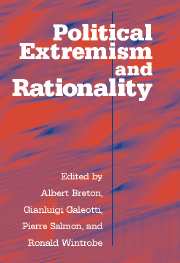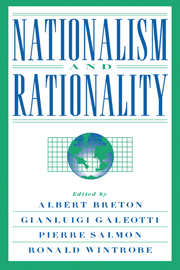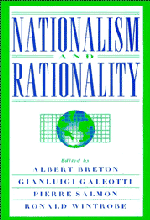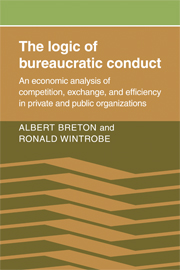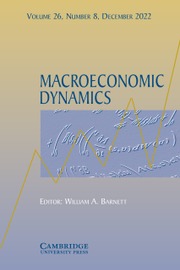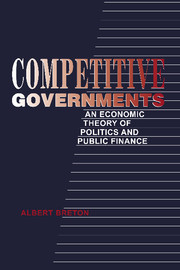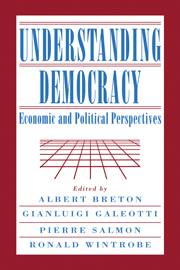Political Extremism and Rationality
The distinguishing feature of this collection by well-known economists and political scientists from North America, Europe, and Australia is to propose a variety of explanations that all insist on the rationality of extremism. The authors identify four core issues in the study of extremism: the nature (definition) of extremism and its origins in both democratic and authoritarian settings, the capacity of democratic political systems to accommodate extremist positions, the strategies (civil disobedience, assassination, lynching) chosen by extremist groups, and the circumstances under which extremism becomes a threat to democracy.
- Political extremism is an important topic in political science, sociology, and economics
- Papers are by internationally recognized experts in political science and economics from North America, Europe and Australia
- 'Public' and 'national' choice approaches to the subject matter cohesively blended here
Reviews & endorsements
Review of the hardback: 'The existence of extremism seems to contradict the idea that participation to political activities is guided by the rational choices of the individuals. This book shows that this is not the case. Extremism may be explained as a rational reaction of the individuals when they face some circumstances such as a 'social hole' in thrust between groups and some asymmetry in the distribution of political rents. The original and challenging contributions of this book were conceived with some unintended foresight. Their publication occurs at a time when, once again, a numerous movement of young people faces the choice among more and less extremist policies. Both the members of the anti-globalization movement and the policy makers who want to avoid it taking an extremist direction may benefit from reading this book. Its insights elucidate the specific circumstances under which extremist, but somehow rational, choices may arise.' Ugo Pagano, University of Siena
Review of the hardback: 'Much of modern political theory, such as the theory of justice developed by John Rawls and his followers, rests on the premise that people are 'reasonable'. But is this premise reasonable? 'Extremism' is a word we use to dismiss views with which we disagree. But, as the authors in this well-argued and compelling volume point out, the concept of extremism can be defined and used as a powerful tool for understanding political conflict. After nailing down extremism's multiple meanings, the authors then provide a variety of views on its importance. If we are to deal with extremism in the political world views of other people, it is crucial that we understand where extremism comes from, how it works, and how a rational person might also be 'extreme'.' Michael Munger, Duke University
Review of the hardback: '… this book deserves a significant and often innovative contribution to the rapidly growing literature on political extremism.' Hans-George Betz, University of Geneva
Product details
December 2010Paperback
9780521168618
264 pages
229 × 152 × 15 mm
0.39kg
Available
Table of Contents
- List of figures and tables
- Introduction Albert Breton, Gianluigi Galeotti, Pierre Salmon, and Ronald Wintrobe
- Part I. Extremism and Rationality:
- 1. The crippled epistemology of extremism Russell Hardin
- 2. Leadership and passion in extremist politics Ronald Wintrobe
- 3. Information control, loss of autonomy, and the emergence of political extremism Albert Breton and Silvana Dalmazzone
- Part II. Extremism in Constitutional Democracies:
- 4. Extremism and monomania Pierre Salmon
- 5. Some democratic propensities for extreme results Geoffrey Brennan
- 6. Strategic positioning and campaigning Amihai Glazer
- 7. At the outskirts of the constitution Gianluigi Galeotti
- 8. Is democracy an antidote to extremism? Harold Hochman
- Part III. Extremism in Non-Democratic Settings:
- 9. The political life cycle of extremist organizations Mario Ferrero
- 10. Rationally violent tactics: evidence from modern Islamic fundamentalism Luisa Giurato and Maria Cristina Molinari
- 11. De Bello Omniumi Contra Omnesj Guido Ortona
- Index.

